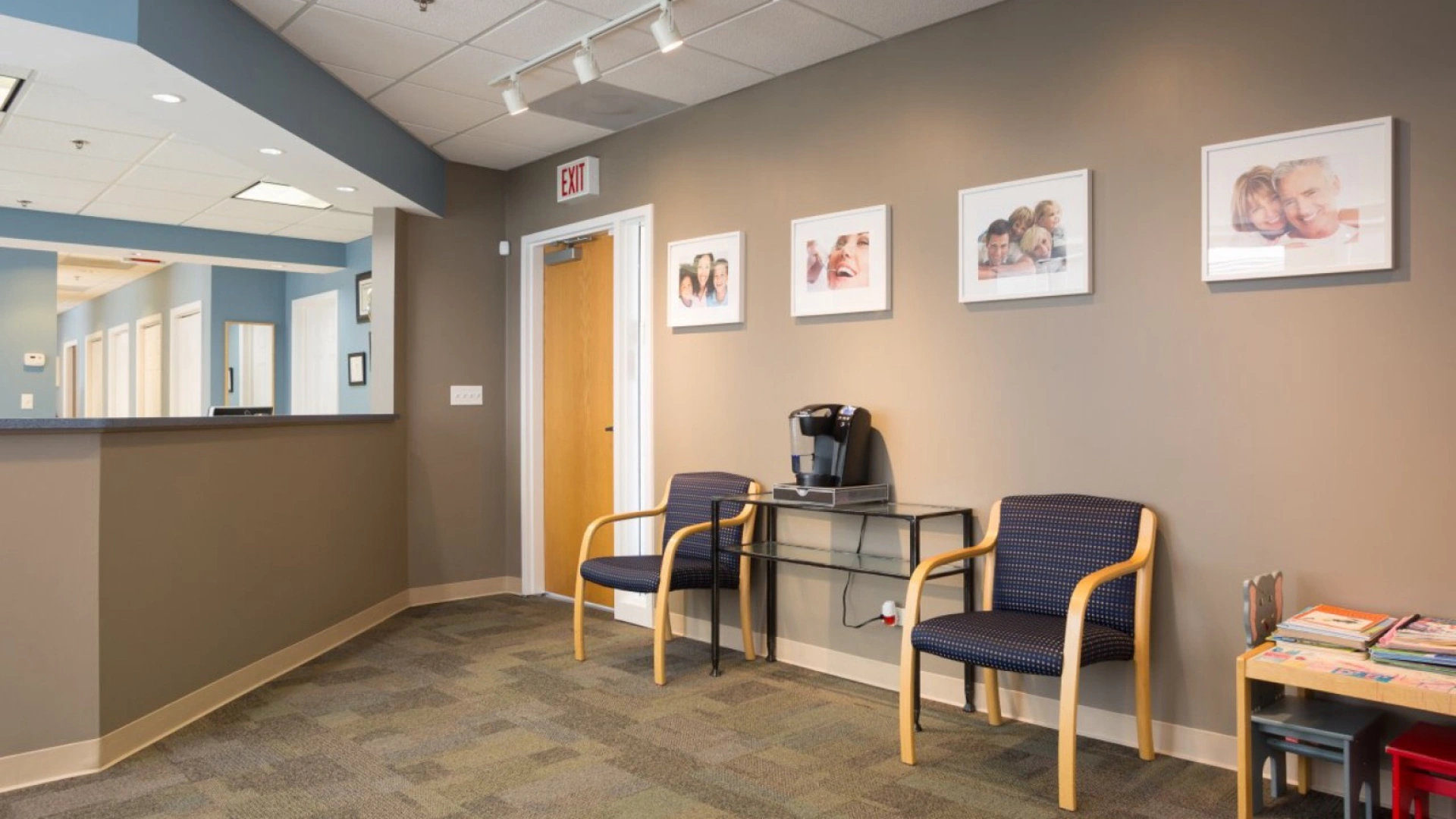What is Preventive Dentistry and What are the Benefits?

Let’s face it. Going to the dentist in Chicago, IL can be a bit of a hassle. You have to book an appointment week in advance, drive there on time, sit in the waiting room for what feels like forever, and spend even longer sitting in a chair while the dentist prods your mouth with different tools.
Luckily, preventive dentistry is here to save you from all that stress! Indeed, preventative dentistry is an umbrella term used to describe dental checkups and services that help keep your teeth healthy and prevent the need for more invasive procedures later on.
If you’re reading this post, we’re willing to bet that you are someone who cares about their appearance. We also bet that—perhaps because of unfortunate past experiences—you are not exactly thrilled at the prospect of having someone poke around in your mouth again soon.
With that said, let’s take a look at why preventive dentistry as well as some tips on how you can get started today.
What Is Preventive Dentistry?
Preventive dentistry can be defined as dental services designed to promote oral health and prevent dental issues and concerns. The importance of preventive services cannot be overstated.
Indeed, studies have shown that approximately 80% of all dental issues arise from poor oral hygiene and poor dietary choices.
Preventive dentistry can be broken down into three major categories:
Oral hygiene – This refers to the practices you use to keep your mouth clean and prevent plaque and tartar build-up.
It’s recommended that you brush your teeth twice a day for two minutes to ensure that you are removing bacteria and particles that can lead to gum disease.
Cavities prevention – To prevent tooth decay, you must maintain a healthy diet and drink plenty of water throughout the day.
Treatment – This category refers to the various procedures dentists use to treat oral health issues that have already developed.
Why Is Preventive Dentistry Important?
Preventive dentistry is important because it can help you avoid more serious dental concerns down the line. For example, if you have gum disease and are not treated, it can lead to cavities and tooth decay.
Similarly, not having your teeth cleaned regularly can lead to bad breath, cavities, and even tooth loss. While you may feel fine now, it’s essential to remember that oral health issues can develop gradually over time.
You may not even notice them until they are already serious enough to warrant oral surgery or other more severe procedures. Preventive dentistry can help you avoid this by identifying and treating issues early on.
Now, let’s get into the different types of preventative dentistry that can be used to address dental health issues you may have.
Regular Dental Checkups
Regular dental checkups have long been a cornerstone of preventive dentistry.
During these checkups, your dentist can identify and treat oral health issues before they become severe enough to require more invasive treatment.
Fluoride Treatments
Fluoride treatments are another common preventive dental procedure.
These treatments use fluorides, minerals that contribute to your oral health by making your teeth less susceptible to decay.
Sealants
This procedure involves applying a protective substance to the surface of your teeth to prevent tooth decay.
Sealants can also be used for children to ensure they don’t have tooth issues as they continue to develop.
X-Rays
Dental x-rays are a valuable diagnostic tool that dentists use to spot issues in your teeth and gums before they become serious enough to cause pain and discomfort.
Before you receive any form of treatment, the first thing your oral health professional will do is take x-rays and go over them with you.
Cleanings
Regular teeth cleanings can help reduce your risk of developing cavities and tooth decay.
Cleaning your teeth should be something you do regularly every day.
Benefits of Preventive Dentistry
As we’ve already discussed, preventive dentistry can help you avoid more serious dental concerns down the line. Indeed, most dental issues are preventable if you take care of your teeth and maintain a good oral hygiene routine.
Here’s more about the benefits you stand to gain when you schedule regular preventative dentistry services.
Dental Checkups Help Find Problems Early
The earlier a problem is caught, the easier and cheaper it is to treat. This is why regular dental checkups are so important, even if you have no signs of tooth decay or other problems.
Depending on your dental health, your hygienist will clean (scrape) your teeth for about 35 minutes. They will look for signs of gum disease, tooth decay, and plaque build-up and will also take X-rays to get a view inside your mouth.
In addition, your hygienist will also check for signs of diabetes, stroke, or heart disease. These factors can be seen in the mouth, so your hygienist can spot them more quickly than if you’re having a regular conversation with them.
Regular Cleanings Can Reduce Risk of Gum Disease
Gum disease is a common problem that is often missed by those who don’t visit their hygienist regularly. This is why regular cleanings are so important, as they are one of the best ways to catch it early and stop it before it gets worse.
Gum disease is more commonly known as periodontal disease. It is not just one type of disease, but a collection of diseases, which can vary from person to person.
It can be diagnosed by a dentist or dental hygienist and treated before it becomes serious. Most cases of gum disease arise from deplorable oral hygiene.
This means that you are not brushing your teeth regularly and thoroughly enough. Regular cleanings are a great way to ensure that your oral hygiene is up to scratch.
The hygienist will not only clean your teeth but will also look for signs of gum disease. If they find any, they will advise you to avoid it getting worse.
Dental Checkups Help You Maintain Good Oral Health
A healthy mouth is a happy mouth—and one of the best ways to maintain good oral health is to visit your hygienist every six months. It’s a good idea to get your teeth cleaned every six months or when you notice that your teeth are not as clean as they used to be.
If you wait until you have a problem, it will be too late—you will have to go to a specialist to fix the issue, which will cost you a lot more money. Your hygienist will clean your teeth, check for signs of decay, and polish your teeth to remove plaque.
They will also advise you on keeping your teeth and gums healthy.
Dental Checkups Help Catch Problems Before They Become Serious
Not all problems are found during cleanings. It is common for some people to have no symptoms at all, while others might notice pain or discomfort.
It all depends on the individual, and one of the best ways to catch these problems before they become serious is to visit your hygienist regularly. Your hygienist will be able to detect problems in the early stages and help you address them before they become serious.
Some dental problems that your hygienist can detect include:
- Infections or cysts
- Periodontal disease
- Oral Cancer
- Tooth decay
If you have any of these problems, your hygienist will be able to help you get them treated before they become serious. If you are not visiting your hygienist regularly, you may not realize that you have a problem until it is too late.
Indeed, most people wait until they have a problem before visiting the dentist, and this is the worst thing to do – it will cost you a lot more money to fix the issue, and it can be painful if left too late.
How to Get Started With Preventive Dentistry?
Getting started with preventive dental services is pretty straightforward. If you are not receiving regular dental care, you should make an appointment with your local dentist as soon as possible.
Once you have an appointment scheduled, you can begin working on making sure your oral hygiene habits are on point. You may also want to pick up some new dental hygiene products.
It’s recommended that you replace your toothbrush every three months and your toothpaste every six months. You should also try to eat a balanced diet with plenty of water.
Dentist in Chicago, IL, and You
A preventive dentist in Chicago, IL should play an essential part in your overall oral health. It can help you avoid serious dental issues and maintain a beautiful smile.
Starting preventive dental services is easy and painless, and it can dramatically reduce your risk of tooth decay, gum disease, and tooth loss. That said, it’s important to remember that oral health issues can develop gradually over time.

